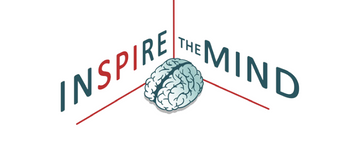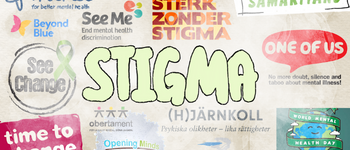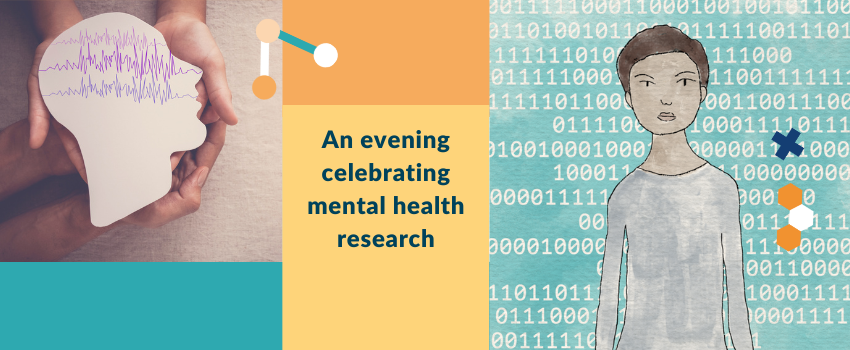BRC in the Community: Celebrating mental health research
BRC in the Community took place on Wednesday 23 November 2022 at Peckham Levels.
Mental health research is at our heart.
Our community of South East London residents, patients, carers, students, community groups and the public are essential to this work. They support us not only by taking part in clinical trials but help shape our research and its translation into treatment through working with our researchers and clinicians.
Our BRC in the Community evening will celebrate the amazing collaborations between us and our community, as well as engaging more people with the importance of mental health research.
Projects showcased will range from spoken word performance, to art displays from autistic artists, to a film about promoting mental health through social media. Our projects engage people from different age groups, genders, backgrounds and types of neurodiversity with the benefits of mental health research.
For more information about BRC in the Community please contact curator Professor Sally Marlow, or Liz Morrow.
Research projects showcase
South East London Photography Group Exhibition
21 - 27 November 2022, Black Gallery Ramp

South East London Photography (SELPh)’s mission is to use photography to ensure marginalised groups have the opportunity to represent themselves and voice their opinions and therefore contribute to a dialogue on health and well-being. Their work is based on photovoice; a participatory research method in which people are given a voice through using photography to communicate issues important to them and to effect change.
During the COVID-19 lockdowns, SELPh invited photographers aged 16 and above and based in the UK to submit their images reflecting on their experiences of the pandemic. Images from the SELPh Online Covid Photography Project were shared in an online gallery and images from in-person sessions and exhibition will be on show in the Black Gallery Ramp at Peckham Levels from Monday 21 to Sunday 27 November 2022 and can also be viewed here.
Artistic & Autistic
Stall
There are around 700,000 autistic people in the UK - which means more than 1 in 100. This project invites autistic artists to promote awareness and improve the conduct and communication of our research. This project combines two fields: art and science.
Ben is local talented artist, who is autistic and has taken part in studies investigating the neurodiversity of the human brain at King’s College London. An EEG cap was used to capture Ben’s brain waves as he drew a live model. These EEG recordings of brain waves will be translated into music. At the event, you will be able to speak with researchers and the artist about their progress and future plans, see Ben’s art and photographs of the process.
Word Up Project (S.W.I.T.C.H - Spoken Word in the Community Hub)
Spoken Word, Films, Stall

A spoken word project and showcase for young people aged 15-25, Word Up took place in March 2020 at Peckham Levels. Combining expressive sessions with a wellbeing focus it provided space for connection, creativity and personal reflections. Young people who attended were engaged, inspired and wrote incredibly passionate pieces of writing. Due to COVID and lockdown restrictions the project came to an abrupt halt, but Writerz and Scribez were able to move sessions online which participants joined.
Young people will perform their spoken word pieces developed during this time, alongside screenings of short films they produced.
Word Up is part of SWITCH, led by poet Jemilea Wisdom-Baako of Writerz and Scribez and artist Kay Rufai, the project aims at reaching audiences that feel excluded from conventional arts organisations, exploring how to increase arts participation. It involves removing barriers by placing the art in community hubs such as barbershops, youth provisions, salons and restaurants – going to people rather than expecting them to come to us.
Breaking the Barriers between Academia and Offenders
Presentation, Film Screening, Stall

This research team engages in conversation with offenders and probation officers about current research being done in this field. They are curious to learn offenders’ questions about research (e.g. its safety, its purpose, its impact) as well as wanting to learn about what they feel should be included in research, based on their own experiences.
This includes studying the neurobiological, neurochemical, and neuropsychological factors that might help us explain and understand violent offending, antisocial personality disorder and psychopathy. The current OXYASP (OXYtocin in AntiSocial Personality disorder) project is looking at the effect of intranasal oxytocin on brain activity.
The presentation will include Tony, a past participant, sharing his experiences and asking the research team his questions in a brief recorded interview. Get in touch with speaker Julia Griem here.
GLAD Study | Depression and anxiety: a conversation with the local community
Presentation, Stall

The Genetic Links to Anxiety and Depression (GLAD) Study, part of the National Institute of Health and Care Research (NIHR) BioResource, is the largest anxiety and depression research project ever undertaken.
Its aim is to improve the understanding of the risk factors for depression and anxiety in order to find effective treatments and improve the lives of people experiencing these disorders.
They welcome anyone who has experienced anxiety or depression during their lives (including those with a diagnosis of bipolar disorder, OCD, and OCD-related disorders), resides in the UK, and is over 16 years old to join the study.
Dementia in the Black and Asian community
Stall – chat with researchers and find out how to get involved

The Old Age Psychiatry department at King's College London are collectively working with the community to raise the awareness of dementia and increase representation of people from ethnic communities within memory research.
Their current EBAME Study explores the health and wellbeing of people from Black, Asian and minority ethnic communities and faith groups during and post the Covid-19 pandemic. The study is interested in long-term impacts of the pandemic on the community, quality of life, mental health and how dementia research awareness/research involvement may differ across ethnicities.
Inspire The Mind | Beyond the blog: Using Creativity to Talk About Mental Health
Presentation, Stall

Inspire the Mind is the digital magazine bringing together everything you’ve always wanted to know about the worlds of mental health, art, and science.
Inspire the Mind focuses on the intersection between mental health and society, through articles, interviews, podcasts and more. They do this with the help of writers with lived experience and academics who specialise inthis research.
Research into improving health equalities in Black UK communities
Stall

Our project is in the planning phase and will be co-designed with the Black community and will focus on health conditions that affect and matter to you. We want to work with people from Black backgrounds in London. We aim to engage 5000 individuals to take part.
Our focus is on health conditions that affect and matter to the Black community. We want to know more about sickle cell anaemia; diabetes; women's health; mental health, and how these affect people. We may explore other health areas if the community raises these to us.
Our study will collect questionnaire responses alongside genetic data samples (saliva/spit/blood), to create a database of research volunteers willing to take part in this and relevant future research. Through the study, we hope to highlight and explore the lack of health equality in this country.
Promoting Men’s Mental Health Through Social Media
Film Screening

Being told to ‘man up’ is often the word of advice given to men.
This may be an unhelpful and unrealistic way to look after oneself. It isn’t always easy to understand your own mental health, know how to speak about it or what might actually help. This 15-minute film sits down with five different guys to explore mental health from a male perspective and shed some light on what might help.
Depression: From bloodletting to wearable devices
Film Screening

A 3 minutes animated film from Alina Ivan on 'Can wearables be the future for depression?'
From Babylonian blood-letting practices that lasted until the 17th century and beyond to recent campaigns leading people to speak more about mental health and seek help - perceptions of depression have changed throughout history. What does the future hold for depression? Can mobile phones and wearable devices be of help?





